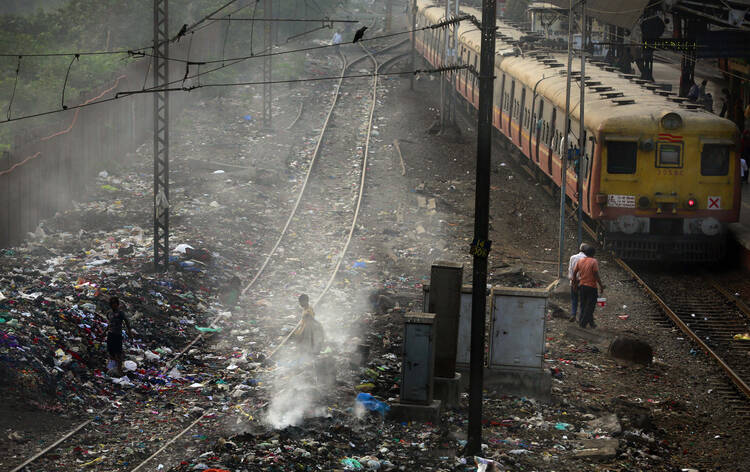Almost all inhabitants of large cities in low- and middle-income countries face excessively high air pollution, a growing problem that is "wreaking havoc on human health" and causes more than 3 million premature deaths each year, the World Health Organization said on May 12.
The agency, hoping to raise awareness and highlight national efforts, said its database now shows more than four in five urban dwellers worldwide live in cities that don't meet WHO air quality guidelines — 98 percent in poorer countries and 56 percent even in high-income countries.
The findings are part of WHO's third Global Urban Ambient Air Pollution Database, which examines outdoor air in 3,000 cities, towns and villages—but mostly cities—across 103 countries. It is based on country reports and other sources.
An accompanying news release said global urban air pollution levels rose by 8 percent between 2008 and 2013 "despite improvements in some regions," and it noted that people face a higher risk of strokes, heart disease, lung cancer and respiratory diseases as air quality worsens.
"Urban air pollution continues to rise at an alarming rate, wreaking havoc on human health," said Dr. Maria Neira, a WHO director for environment and public health. "At the same time, awareness is rising and more cities are monitoring their air quality. When air quality improves, global respiratory and cardiovascular-related illnesses decrease."
The database named Zabol, Iran, as the city with the highest annual mean concentration of particulate matter of less than 2.5 microns in diameter.
The Indian capital of New Delhi, which had previously topped the list, dropped to No. 9 after the city managed to decrease its annual average concentration of particulate matter by about 20 percent from 2014 to 2015. The change coincides with a series of air-clearing measures including banning older cars and cargo trucks from city limits.
"New Delhi has succeeded in arresting the trend, which shows that if you take action, you will see results," said Anumita Roychowdhury, executive director of research and advocacy at the Delhi-based Center for Science and Environment. New Delhi has continued its air-clearing campaign by introducing steep fines for construction pollution or the garbage burning, as well as shutting down an old coal-fired power plant.
But India overall is still struggling, with the WHO data set showing four other Indian cities—Gwalior, Allahabad, Patna and Raipur—surpassing New Delhi to rank as the world's second, third, fourth and fifth most polluted.
"Ambient air pollution, made of high concentrations of small and fine particulate matter, is the greatest environmental risk to health—causing more than 3 million premature deaths worldwide ever year," WHO's statement said.
Citing efforts by policymakers to promote cleaner transportation, production of more efficient energy and better waste management, WHO said: "More than half of the monitored cities in high-income countries and more than one-third in low- and middle-income countries reduced their air pollution levels by more than 5 percent in five years."
___
Katy Daigle in New Delhi contributed to this report.
Copyright 2016 The Associated Press. All rights reserved. This material may not be published, broadcast, rewritten or redistributed.








